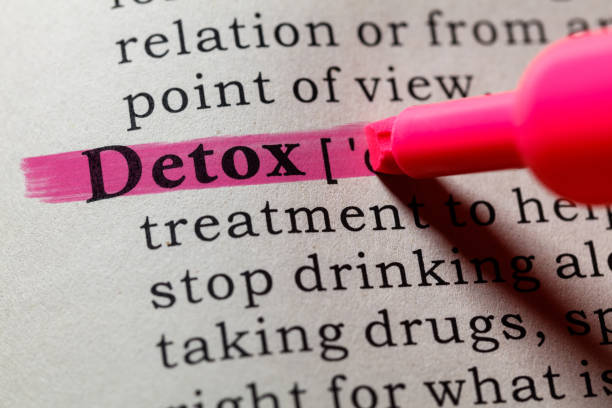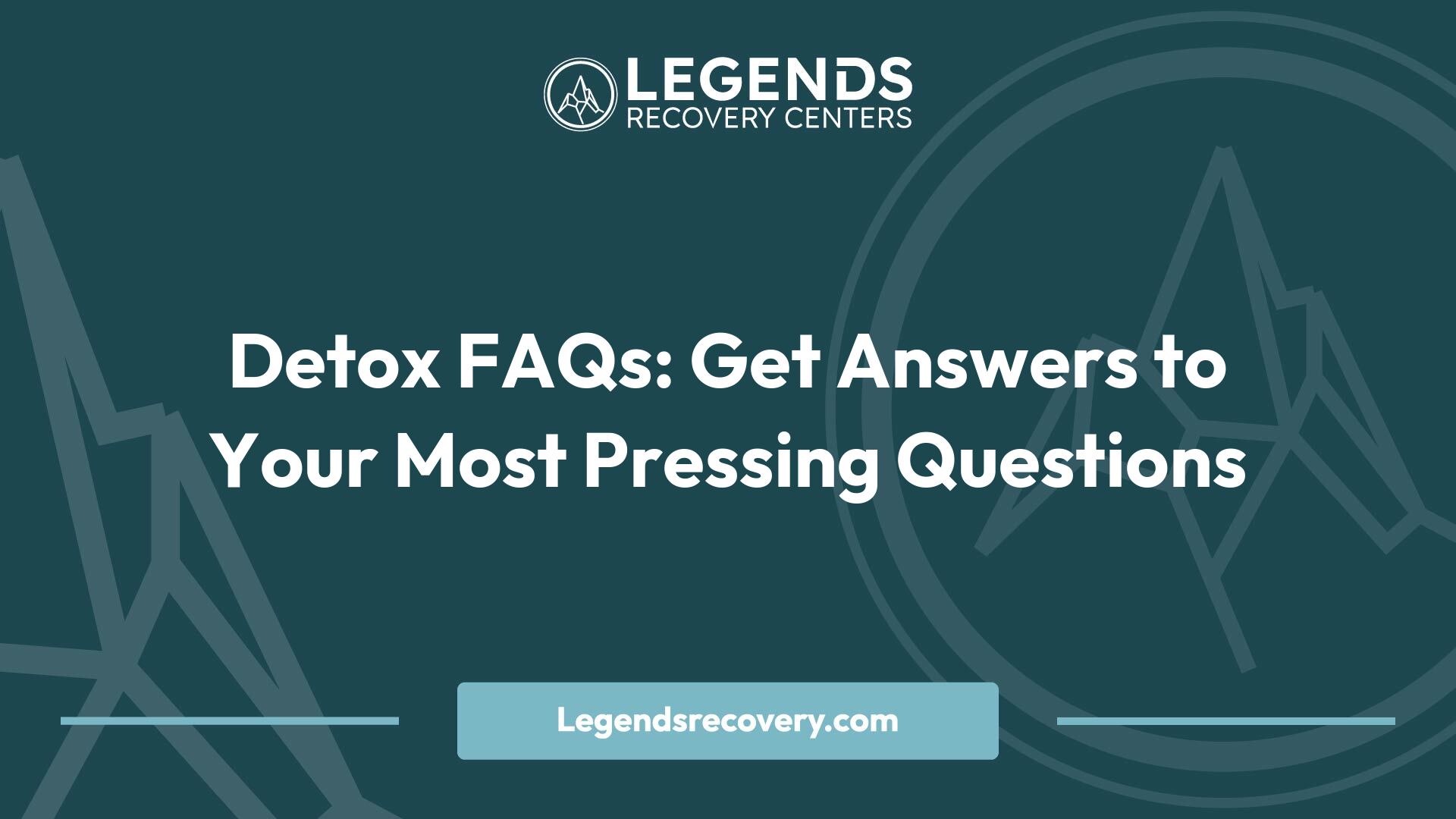Discover the truth about detox with answers to your pressing questions. From myths to medication, get the facts you need!

When considering alcohol detox, it is essential to understand both the duration of the detox process and the importance of drug detox.
The detox process typically lasts between 7 and 10 days, but the duration can vary for different individuals based on factors such as the type of substance, duration of addiction, and overall health. During this period, the body undergoes a rigorous process of eliminating toxins accumulated from alcohol consumption. It is crucial to have professional support and medical supervision throughout the detox to ensure a safe and effective transition.

Drug detox is a critical step in the journey to recovery. It involves the process of eliminating harmful toxins accumulated from drug use, managing withdrawal symptoms, and preparing individuals for further care. Special attention is needed when detoxing from substances like crystal meth due to their highly addictive nature.
Recognizing the importance of drug detox is key to breaking the cycle of substance dependence and initiating the path to long-term sobriety. Seeking professional help and guidance during this phase is crucial for a successful detox experience and laying a strong foundation for sustained recovery.
As individuals navigate the detox process, it is important to access resources and support systems that can provide assistance and guidance. Organizations like SAMHSA's National Helpline offer a free, confidential, 24/7 service for individuals and families facing mental and substance use disorders. This helpline serves as a valuable resource for connecting individuals to local treatment facilities, support groups, and community-based organizations, facilitating access to essential care and support.
Understanding the duration of the detox process and the significance of drug detox is vital for individuals embarking on the journey to sobriety. By acknowledging the challenges and embracing the support available, individuals can navigate the detox process with confidence and commitment, paving the way for a healthier and brighter future beyond addiction.
Before embarking on the journey of alcohol detox, individuals need to prepare themselves mentally, physically, and emotionally for the process. Proper preparation can help ease the transition and maximize the chances of a successful detoxification experience.
Mental preparation is crucial for the detox process. To ready oneself mentally, individuals should set clear intentions, educate themselves about potential withdrawal symptoms, create positive affirmations, set realistic expectations, and focus on the future benefits of detoxification and rehabilitation. Having a clear mindset and understanding the challenges ahead can empower individuals to face detox with determination and resilience.
Physical readiness for detox involves ensuring that the body is adequately prepared for the process. This includes maintaining proper nutrition, staying hydrated, seeking medical support for managing withdrawal symptoms, and prioritizing rest and exercise [2]. A healthy body can better cope with the physical stress of detox, aiding in a smoother recovery process.
Emotional readiness is equally important when preparing for detox. Building a supportive network of family, friends, or support groups can provide understanding, encouragement, and reduce feelings of isolation during the detox process. Having emotional support can significantly minimize the risk of relapse and enhance overall well-being. Embracing emotions, seeking counseling, and practicing self-care techniques can contribute to emotional stability during detox.
As individuals focus on mental, physical, and emotional readiness for detox, they pave the way for a more structured and effective recovery process. It is essential to remember that detox is just the beginning of the journey towards long-term sobriety. To explore what comes next after detox, check out our article on the path to long-term sobriety.
Diving into the realm of detox diets, it's essential to separate fact from fiction when it comes to their claims and potential risks.
Detox diets often boast of various health benefits such as improved immune system function, enhanced digestion, increased energy levels, and even weight loss. While these claims sound promising, it's crucial to approach them with a critical lens. Studies on detox diets are limited and flawed, with human research lacking substantial evidence to support these purported benefits.
In reality, our bodies are naturally equipped to eliminate toxins through biological processes involving the liver, kidneys, colon, sweat glands, and other means. While some environmental toxins may take longer to expel, modern manufacturing practices have significantly reduced exposure to harmful chemicals like POPs, phthalates, BPA, and heavy metals.
Opting for a detox diet may seem like a quick fix for cleansing your system, but it's essential to be aware of the potential risks involved. While some individuals may report feeling more focused and energetic during and after a detox, this could be attributed to eliminating processed foods, alcohol, and unhealthy substances from their diet. However, many also experience adverse effects during the detox period.
One common misconception about detox diets is the belief that weight loss achieved during a detox is primarily fat loss. In reality, initial weight loss on a detox diet is often due to fluid and carbohydrate store depletion rather than the shedding of fat. This weight is typically regained quickly once normal eating patterns resume.
Moreover, severe calorie restriction and limited nutrient intake during detox diets can lead to a range of side effects, including fatigue, irritability, halitosis, and in severe cases, energy deficiencies, vitamin deficiencies, electrolyte imbalances, and even fatal outcomes. Colon cleansing techniques employed in some detox regimens can also trigger dehydration, cramping, bloating, nausea, and vomiting [4].
When considering embarking on a detox diet, it's imperative to weigh the potential risks against the purported benefits and seek guidance from healthcare professionals to make informed decisions about your health and well-being. Remember, your body has innate mechanisms to eliminate toxins, and extreme detox methods may do more harm than good.
In the process of alcohol detox, managing withdrawal symptoms is a critical component. Individuals undergoing detox may experience a range of physical and psychological symptoms as their bodies adjust to the absence of alcohol. Understanding how to effectively manage these symptoms and the role of medication in detox can significantly impact the detoxification process.
Withdrawal symptoms from alcohol detox can vary in severity depending on the individual's level of alcohol dependence and overall health. Common withdrawal symptoms may include:
It is essential for individuals going through detox to have medical supervision to ensure their safety and provide support during this challenging phase. Proper management of withdrawal symptoms can help reduce discomfort and decrease the risk of complications.
In some cases, medication may be prescribed during alcohol detox to alleviate withdrawal symptoms or prevent potential complications. Medications used during alcohol detox may include:
The use of medication in detox should always be supervised by medical professionals to ensure safety and effectiveness. It is crucial for individuals undergoing alcohol detox to follow medical advice and guidelines regarding medication usage to facilitate a smooth and successful detoxification process.
By effectively managing withdrawal symptoms and utilizing medication when necessary, individuals can navigate the challenges of alcohol detox with greater support and guidance. Seeking professional help and medical supervision during detox is essential to ensure a safe and effective transition towards sobriety. For more information on the complexities of detox and the path to long-term recovery, explore our articles on the power of detox: breaking the cycle of alcohol dependence and detox is just the beginning: the path to long-term sobriety.
When considering alcohol detox, it's essential to explore the different types of detox programs available to meet individual needs. Inpatient detox programs and holistic and medication-assisted programs offer varying levels of care to support individuals on their journey to recovery.
Inpatient detox programs provide the most intensive level of treatment care for individuals with severe cases of addiction where significant medical and/or mental health issues have developed. These programs require individuals to reside within a treatment facility for the duration of the detox process, typically ranging from a few days to a few weeks, depending on the individual's needs.
Inpatient detox offers round-the-clock medical supervision and support, ensuring that individuals receive immediate care for any withdrawal symptoms or complications that may arise during the detox process. This level of care is particularly beneficial for those struggling with severe addiction or co-occurring mental health disorders that require close monitoring and medical intervention.
Throughout an inpatient detox program, individuals have access to a structured environment where they can focus solely on their recovery without the distractions or triggers of daily life. The comprehensive support provided in these programs aims to ensure a safe and effective detoxification process, setting the foundation for long-term sobriety.
Holistic detox programs combine traditional treatment approaches with alternative therapies to address addiction's impact on the mind, body, and spirit. These programs focus on healing the whole individual, incorporating therapies such as yoga, meditation, acupuncture, and nutritional counseling to promote overall well-being during the detox process.
On the other hand, medication-assisted detox programs utilize government-approved medications like Methadone, Suboxone, and Antabuse to alleviate severe withdrawal symptoms associated with opiate and alcohol-based addictions. These medications help individuals manage cravings and withdrawal discomfort, making the detox process more manageable and increasing the likelihood of successful long-term recovery.
Holistic and medication-assisted detox programs offer a multifaceted approach to detoxification, addressing not only the physical aspects of addiction but also the psychological and emotional components. By combining evidence-based treatments with complementary therapies, these programs strive to provide individuals with a comprehensive and personalized path to recovery.
When selecting a detox program, it's important to consider factors such as the history of substance use, previous treatment experiences, and the presence of any mental health conditions [5]. The right program can significantly impact the success of the detox process and ultimately pave the way for a sustainable and healthy recovery journey.
Outpatient detox programs provide individuals with a less intensive approach to detox, allowing them to manage substance urges in their daily lives while undergoing treatment. Here, we explore the benefits of outpatient detox, as well as the process and support offered in such programs.
Outpatient detox programs, like the one in Rough and Ready, California, cater to individuals with mild to moderate addiction concerns, providing a safe environment for drug or alcohol detox from the comfort of their homes. With the process typically lasting between 3 to 10 days, outpatient detox allows individuals to receive the necessary care without disrupting their daily routines [7].
One of the key advantages of outpatient detoxification is the flexibility it offers. Treatment sessions are scheduled multiple times a week based on individual needs, ensuring that participants can continue with their work, school, or family commitments while focusing on their recovery. Furthermore, successful completion of outpatient detox often leads to discussions about transitioning to further treatment programs, such as inpatient or intensive outpatient programs, to support ongoing recovery through therapy and counseling services.
During outpatient detox in Rough and Ready, California, individuals may experience a variety of withdrawal symptoms, including nausea, insomnia, anxiety, depression, mood swings, shaking, fatigue, and drug cravings. To manage these symptoms effectively, proper medical and psychological approaches are implemented to provide comprehensive care and support throughout the detox process.
One of the main advantages of outpatient detoxification is the ability to maintain daily routines and responsibilities. Participants can attend scheduled appointments, receive guidance, and access support services, making it a practical option for individuals seeking addiction treatment. The structured approach of outpatient detox helps individuals establish a positive foundation for recovery while keeping them connected to their support systems and community resources.
Considering the benefits and support available in outpatient detox programs, individuals with mild to moderate addiction concerns can embark on their recovery journey in a safe and familiar environment. Through a combination of medical supervision, psychological support, and personalized care, outpatient detox offers a viable option for those seeking to overcome substance use disorders while maintaining their everyday lives.
[2]:
[3]:
[4]:
[5]:
[6]:
[7]: